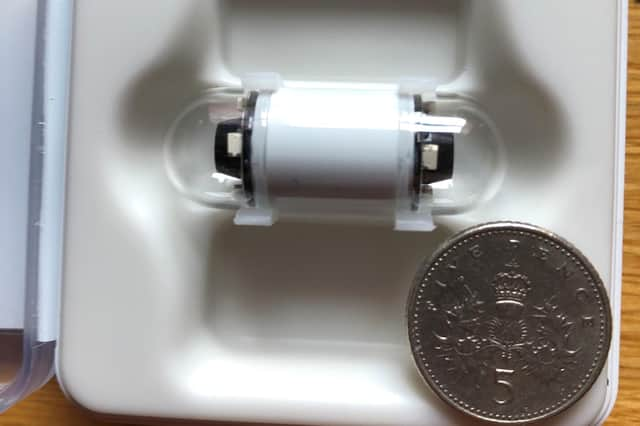Top national accolade for Sheffield Teaching Hospitals’ team pioneering tiny pill-sized cameras to diagnose bowel problems


The team are one of four across the country in the running for the Innovation of the Year award in the prestigious Royal College of Physicians Excellence in Patient Care Awards. The Award recognises projects that use innovative new techniques or ideas that have contributed to significant improvements in patient care or health outcomes.
As well as being the first centre in the UK to use small pill-sized cameras to examine areas of the small bowel that are usually impossible to reach without surgery, the team have expanded its use to examine the whole of the gastrointestinal tract. This has played a pivotal role in helping patients with diseases of the large bowel and colon, such as Crohn’s and coeliac disease, suspected tumours and problems which cause anaemia and bleeding, get a diagnosis as the small pill cameras can access hard to reach areas of the coiled-up intestine.
Advertisement
Hide AdAdvertisement
Hide AdThe team have also played a leading role in the use of double balloon enteroscopy, a cutting-edge procedure that enables the entire small bowel to be examined in real time through the use of a flexible, high resolution video endoscope and the use of two balloons which gently grip the wall of the bowel when inflated.


Most recently they were the first centre outside China to use a miniature robot-controlled capsule system to navigate the camera around the stomach and examine its whole surface.
Professor Mark McAlindon, consultant gastroenterologist at Sheffield Teaching Hospitals NHS Foundation Trust, said: “We are delighted to have been nominated for this prestigious national award. Minimally invasive endoscopy technologies have revolutionised care for patients with hard to diagnose diseases of the small and large bowel and now the stomach, aiding diagnosis and helping patients to get vital treatments without the need for invasive investigations involving surgery. We have also been at the forefront of advancing clinical practice of these cutting-edge technologies, contributing to the development of research, education and international learning on the benefits of minimally invasive endoscopy as a low risk alternative diagnostic tool for appropriate patients during the pandemic.”
The award winners will be announced on May 25.